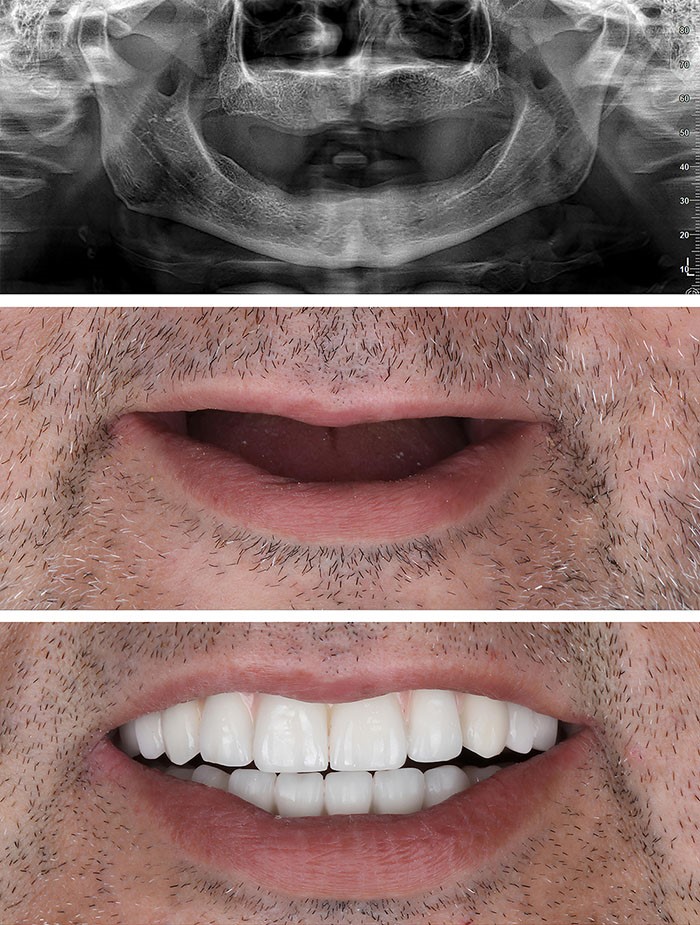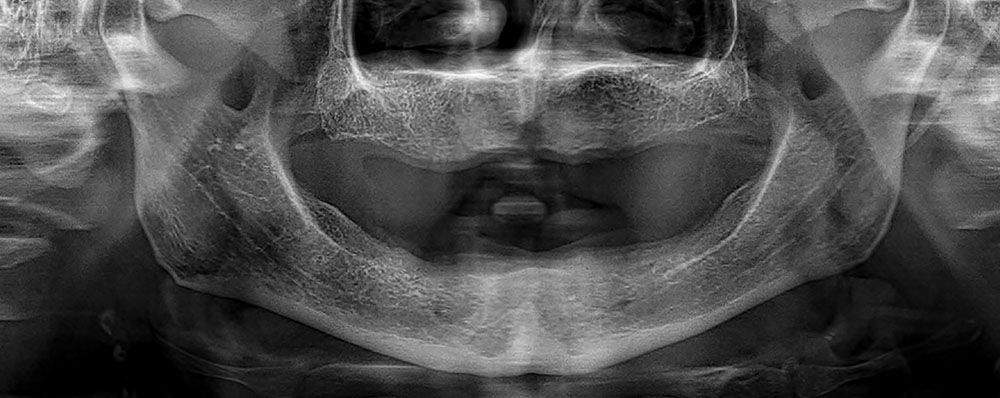A New Smile: How Full Mouth Dental Implants Can Transform Your Life
Are you tired of covering your mouth when you smile? Do you avoid social gatherings because of your dental issues? If so, it’s time to consider the life-changing benefits of full mouth dental implants. This advanced dental procedure can completely transform your smile and improve your overall quality of life.
Full mouth dental implants are a revolutionary solution for individuals who have lost multiple teeth or are dealing with severe dental problems. Unlike traditional dentures, these implants provide a permanent and natural-looking solution that feels and functions like real teeth. With full mouth dental implants, you can confidently speak, eat, and interact with others without the worry and embarrassment of missing or damaged teeth.
Not only do full mouth dental implants restore your smile, but they also offer numerous long-term benefits. They prevent bone loss, preserve facial structure, and help maintain proper oral hygiene. Additionally, they enhance your self-esteem and boost your confidence, enabling you to enjoy a more fulfilling social and professional life.
If you’re ready to regain your smile and transform your life, full mouth dental implants could be the perfect solution for you. Don’t let dental issues hold you back any longer – take the first step towards a new smile today.
Understanding full mouth dental implants
Dental implants are artificial tooth roots that are surgically placed into the jawbone to replace missing teeth. Full mouth dental implants, also known as All-on-4 or All-on-6 implants, are a comprehensive solution for individuals who have lost all or most of their natural teeth. Unlike traditional dentures, which can be uncomfortable and unstable, full mouth dental implants provide a permanent, natural-looking, and functional solution that can transform your smile and improve your overall quality of life.
The key difference between full mouth dental implants and traditional implants is the number of implants used. Full mouth dental implants typically involve the placement of four to six implants in the upper or lower jaw, which then support a full arch of replacement teeth. This innovative approach allows for a more efficient and cost-effective solution compared to individual implants for each missing tooth.
During the full mouth dental implant procedure, the dentist will carefully plan the placement of the implants to ensure optimal stability and support for the replacement teeth. The implants are then surgically placed into the jawbone, and a temporary prosthetic teeth or denture is immediately attached. Over the course of several months, the implants will fuse with the surrounding bone in a process called osseointegration, creating a strong and stable foundation for the permanent replacement teeth.
The advantages of full mouth dental implants
One of the primary advantages of full mouth dental implants is the restoration of a complete, natural-looking smile. With traditional dentures, the replacement teeth can often appear artificial and lack the same level of stability and functionality as natural teeth. Full mouth dental implants, on the other hand, provide a seamless and aesthetically pleasing solution that blends seamlessly with your remaining natural teeth, if any.
Another significant advantage of full mouth dental implants is their long-term durability and stability. Unlike dentures, which may require frequent adjustments or replacement, full mouth dental implants are designed to last a lifetime with proper care and maintenance. The titanium implants fuse with the jawbone, creating a strong and secure foundation that can withstand the stresses of everyday chewing and biting.
Full mouth dental implants also offer improved oral health and function compared to traditional dentures. By preserving the natural structure of the jawbone, implants help to prevent bone loss and maintain the integrity of the facial structure. This not only enhances the appearance of your smile but also helps to maintain the overall health of your mouth. Additionally, full mouth dental implants allow for improved speech, eating, and swallowing, as they function and feel like natural teeth.

Factors to consider before getting full mouth dental implants
Before deciding to undergo full mouth dental implants, it’s important to consider several factors that may impact the success and suitability of the procedure. One of the primary considerations is the overall health of your mouth and jawbone. Individuals with certain medical conditions, such as uncontrolled diabetes or osteoporosis, may not be ideal candidates for full mouth dental implants, as these conditions can impair the healing process and the ability of the implants to fuse with the bone.
Another crucial factor to consider is the availability and quality of the jawbone. Sufficient bone volume and density are essential for the successful placement and integration of the dental implants. If you have experienced significant bone loss due to tooth loss or other factors, you may require additional procedures, such as bone grafting, to prepare the jawbone for the implants.
The cost of full mouth dental implants is also an important consideration. While the initial investment may be higher than traditional dentures, the long-term benefits and durability of full mouth dental implants can make them a more cost-effective solution in the long run. It’s essential to discuss the financial aspects with your dentist and explore any available payment plans or financing options to ensure that the treatment is accessible and affordable for you.
The full mouth dental implant procedure
The full mouth dental implant procedure typically involves several steps and multiple visits to the dentist over the course of several months. The process typically begins with a comprehensive evaluation, including X-rays, CT scans, and a thorough examination of your oral health, to determine the best course of treatment.
Once the treatment plan has been established, the first step is the surgical placement of the dental implants. This is typically done under local anesthesia, and the dentist will carefully position the implants in the optimal locations within the jawbone. In some cases, additional procedures, such as bone grafting, may be necessary to ensure the proper placement and integration of the implants.
After the implants have been placed, a temporary prosthetic teeth or denture will be attached to the implants, allowing you to continue with your daily activities while the implants fuse with the surrounding bone. This process, known as osseointegration, typically takes several months to complete. During this time, you will need to follow a specific oral hygiene routine and attend regular follow-up appointments to ensure the proper healing and integration of the implants.
Once the osseointegration process is complete, the dentist will then attach the permanent replacement teeth or denture to the implants. This final step involves the creation of custom-made, natural-looking replacement teeth that are designed to fit seamlessly with your remaining natural teeth, if any. The end result is a complete, functional, and aesthetically pleasing smile that can restore your confidence and improve your quality of life.
Recovery and aftercare for full mouth dental implants
The recovery process for full mouth dental implants can vary depending on the individual’s overall health, the complexity of the procedure, and the number of implants placed. In general, however, most patients can expect a relatively smooth and manageable recovery period.
Immediately after the implant surgery, you may experience some discomfort, swelling, and minor bleeding, which can be managed with over-the-counter pain medication and cold compresses. Your dentist will provide you with specific instructions on how to care for the surgical sites and maintain proper oral hygiene during the initial healing phase.
As the implants begin to fuse with the surrounding bone, you may need to follow a soft-food diet for the first few weeks to allow the surgical sites to heal properly. Over time, as the osseointegration process progresses, you will be able to gradually reintroduce more solid foods into your diet, eventually returning to your normal eating habits.
Maintaining proper oral hygiene is crucial for the long-term success of your full mouth dental implants.
Your dentist will provide you with specific instructions on how to brush, floss, and care for your replacement teeth, as well as the importance of regular dental check-ups and cleanings. With proper care and maintenance, your full mouth dental implants can last a lifetime, providing you with a beautiful, functional, and confident smile.
Common misconceptions about full mouth dental implants
One of the most common misconceptions about full mouth dental implants is that they are a painful and invasive procedure. While it’s true that the initial implant placement surgery can be somewhat uncomfortable, modern anesthetic techniques and pain management strategies have significantly reduced the discomfort experienced by patients. In fact, many patients report that the procedure is no more painful than a routine tooth extraction.
Another misconception is that full mouth dental implants are not a suitable solution for older adults. In reality, age is not a primary factor in determining the suitability of full mouth dental implants. As long as the individual has good overall health and a sufficient amount of jawbone density, full mouth dental implants can be an excellent option for people of all ages.
Cost for full mouth dental implants
One of the primary concerns that many patients have when considering full mouth dental implants is the cost of the procedure. It’s true that the initial investment can be higher than traditional dentures or other tooth replacement options. However, it’s important to consider the long-term benefits and cost-effectiveness of full mouth dental implants.
The cost of full mouth dental implants can vary depending on several factors, including the location of the dental practice, the complexity of the procedure, the number of implants required, and the type of replacement teeth or dentures used. On average, the cost of full mouth dental implants can range from £3000,- to £12000,- per arch (upper or lower jaw).
While the upfront cost may seem high, it’s important to remember that full mouth dental implants are a long-term investment in your oral health and overall quality of life. Unlike traditional dentures, which may need to be replaced every few years, full mouth dental implants are designed to last a lifetime with proper care and maintenance. This can make them a more cost-effective solution in the long run.
The life-changing benefits of full mouth dental implants
Full mouth dental implants are a transformative solution for individuals who have lost multiple teeth or are dealing with severe dental problems. By providing a permanent, natural-looking, and functional replacement for missing teeth, full mouth dental implants can dramatically improve your quality of life, boost your confidence, and enhance your overall oral health.
From the restoration of a complete and aesthetically pleasing smile to the improved functionality and long-term durability, full mouth dental implants offer a wide range of benefits that can truly change your life. Whether you’re struggling with the discomfort and embarrassment of traditional dentures or simply looking to regain the confidence and freedom that comes with a healthy, beautiful smile, full mouth dental implants may be the solution you’ve been searching for.
If you’re ready to take the first step towards a new smile and a transformed life, it’s important to consult with our dentist who specializes in full mouth dental implants. We can provide you with a comprehensive evaluation, develop a personalized treatment plan, and guide you through the entire process, ensuring that you achieve the best possible outcome and the long-lasting benefits of this life-changing procedure.
You can call us on our WhatsApp line to get information about Implant Treatments and all your other options.

